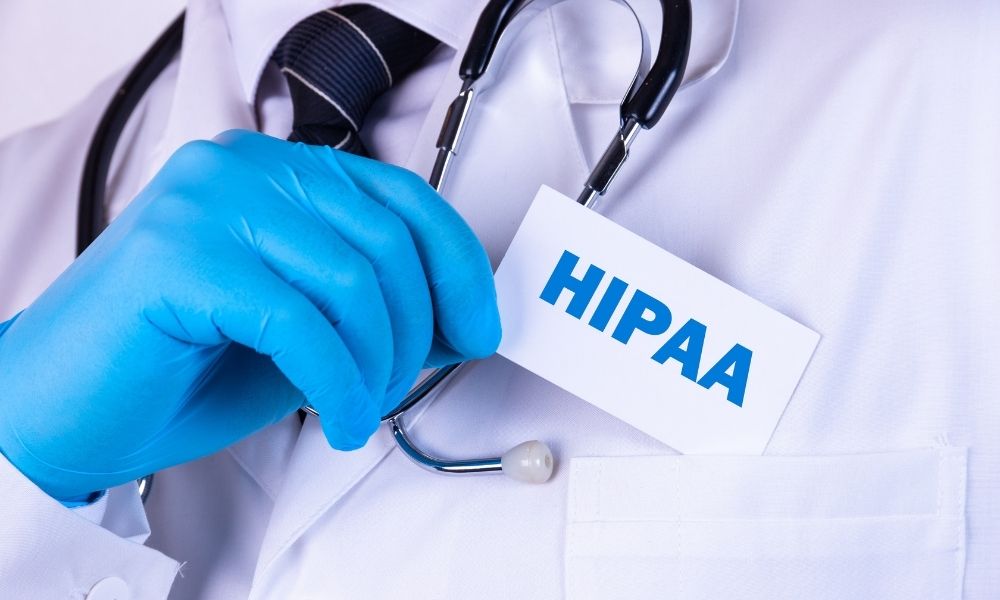Security of sensitive information has become a priority for every business in the age of digital. Health Insurance Portability and Accountability Act has strict guidelines for the healthcare sector for the management, storage, handling and safeguarding of protected medical data (PHI). HIPAA compliance is crucial for healthcare institutions to ensure privacy while avoiding penalties and maintaining the trust of their customers.

HIPAA legislation covers healthcare providers such as health plans, health insurance companies, health clearinghouses and business associates of HIPAA-covered entities. PHI includes any information that could be used to identify a person that includes names, addresses and credit card numbers. Additionally, it includes information about medical conditions and procedures. PHI is of substantial black market value because of its potential role for identity theft.
The HIPAA Privacy rule provides guidelines for disclosure and use of personal health information (PHI). To ensure the confidentiality, integrity and availability covered entities are required to establish policies and practices. The policies and procedures cover security awareness training and other measures like access controls and security procedures for incidents. These entities are also obliged to limit the usage and disclosure of personal data to what is needed to accomplish their intended purpose.
HIPAA Security Rules requires that covered entities use technical, physical, and administrative security measures to protect security, confidentiality and integrity of ePHI. These safeguards include access control, audit controls, integrity controls, transmission security and contingency plans. They must also regularly assess risk levels to determine potential vulnerabilities and to implement measures to limit the risks.
HIPAA’s Breach Notification Rule mandates that covered entities notify affected patients and the Secretary of Health and Human Services and in certain instances, media in the event of a sloppy breach of PHI. A breach is defined as an acquisition of, access to, disclosure, or usage of PHI that is in violation of the Privacy Rule and compromises the security of or privacy. The covered entity have to conduct a risk assessment to determine the probability that the PHI is compromised and the potential harm that might result from the breach.
HIPAA compliance requires ongoing training and education for employees to ensure they understand their obligations regarding privacy of patients and security. The covered organizations must undertake regular risk assessments in order to identify vulnerabilities and implement mitigation measures. These may include the implementation of security controls, including encryption of ePHI as well as implementing contingency plans in case an incident involving security.
In the modern age, technology has had a major impact on virtually every aspect of our lives, including healthcare. Electronic health records are an innovative instrument that enables healthcare professionals to manage and store patient data in a seamless manner. This has created significant cybersecurity risks and strict compliance with HIPAA is crucial. Patient information is extremely sensitive and needs to be secured at all costs. The importance of HIPAA has grown more than ever due to the growing threats of cyberattacks. HIPAA is a law designed to protect patient privacy and information security, and thus increase the confidence of patients in their healthcare providers.
HIPAA compliance helps healthcare organizations ensure privacy of patients while maintaining the trust of patients. HIPAA compliance violations could be the cause of fines ranging from $0 to $100,000 or more, and legal action as well as damage to your reputation. Office for Civil Rights of the Department of Health and Human Services is responsible for enforcement of HIPAA regulations and can investigate complaints and conduct compliance audits.
HIPAA compliance is vital for healthcare institutions to ensure patients’ privacy in the current digital age. The regulations set forth by HIPAA provide clear guidelines for the administration, storage, handling, and protection of patient health information. Healthcare facilities should ensure that they adhere to HIPAA-compliant policies and procedures, perform regular risk assessments, provide regular training and education to their employees and conduct regular risk assessments. They can stay clear of fines and penalties for financial or legal violations by maintaining trust among patients.
For more information, click how does hipaa protect patients






